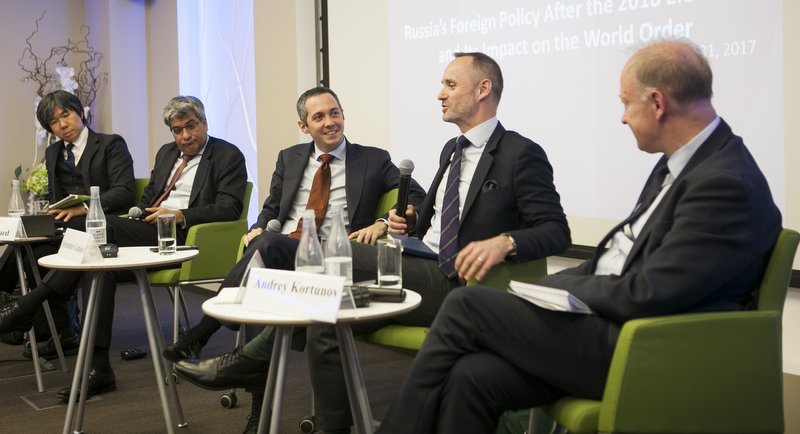Registration
You will receive an email confirming your registration.
On October 31, Carnegie Moscow Center hosted a public discussion of directions in Russia’s foreign policy following the upcoming presidential elections in March 2018 and its impact on the international order.
Russia will be the last of several major powers that are entering the new political cycle after presidential elections in the United States, the 19th Party Congress in China, and parliamentary elections in Germany and Japan. Few predicted the dramatic shift in Russia’s foreign policy in the previous cycle that started in 2012, and the impact that Moscow’s actions would have on the international and regional order.
- What shall we expect from Russia as a global actor in 2018–2024?
- What are the key external and domestic drivers of Moscow’s foreign policy, and how does this affect its relationship with key partners and adversaries?
- What are the expectations of key global players in Europe, the United States, and Asia, and how do they view Russia’s role in shaping the international order going forward?
These and many other questions were discussed by a panel of distinguished experts. Carnegie’s Alexander Gabuev moderated.
Speakers
Andrey Kortunov is the director general of the Russian International Affairs Council
Hosoya Yuichi is a professor at Keio University (Japan)
Tomáš Valášek is the director of Carnegie Europe
Salman Ahmed is a senior fellow at the Carnegie Endowment for International Peace
Moderator
Alexander Gabuev is a senior fellow and the chair of the Russia in the Asia-Pacific Program at the Carnegie Moscow Center
